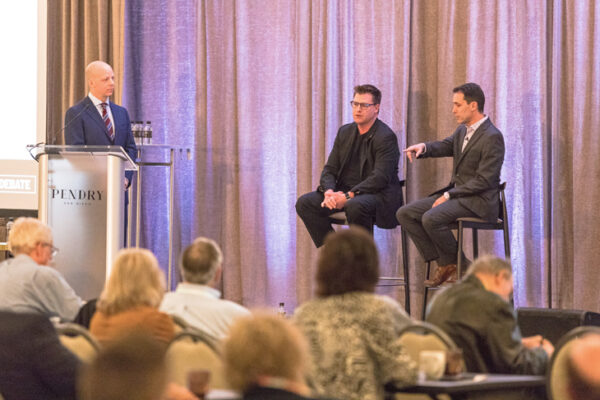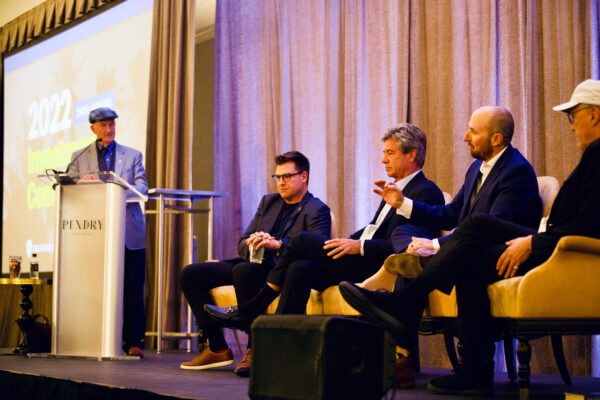Total Student Loan Debt in the United States Squashes American Dream
I remember the day my wife and I bought our first house.
We were giddy.
Drunk on young love and possibilities.
We held in our hands a check for more than $250,000 and took photos of ourselves posing with it.
At the time, it was the largest sum of money we’d ever physically held. And we were painfully about to hand it over to someone else.
But in those glory days before the devastating financial crisis, we were purchasing our piece of the American Dream.
For many young Americans today – regardless of their upbringing – the joys, headaches and trials of homeownership are out of reach… at least for now.
And that’s due to an eye-opening trend…
It Ain’t Cheap
The statistics are nothing short of staggering.
Younger Americans are in worse financial straits than the generations that preceded them.

The average net worth of 18- to 35-year-olds is a mere $8,000.
$8,000!
They’re feeling the pinch of rising costs, stagnating incomes and suffocating debt.
But it’s that last one that I want to home in on…
There’s an entire generation that’s buried under student debt.
Over the past decade, education expenses have skyrocketed 65%. And over the last 35 years, the average cost of tuition has quadrupled!
The result: Americans are buckling under the burden of $1.56 trillion in outstanding student debt…

This has had wide-ranging effects.
And it’s adding to the pressure for those trying to grab their piece of the American Dream… because it ain’t cheap.
First-time home buyers are paying 39% more than those four decades ago. And homeownership among Americans under the age of 35 has toppled, falling to record lows.
Those sky-high student loan payments are preventing them from cobbling together a down payment.
Unprecedented debt is the main reason millennials are hitting traditional milestones later in life than their parents or grandparents. They’re living at home longer, waiting to get married, delaying starting a family and, ultimately, putting off buying a home.
But there’s something else bothering me about this situation…
A Higher Ed Headache
Here’s what really makes my head spin…
Academic skills rank the lowest among attributes employers consider when hiring recent college grads!
What school you went to, what your GPA was and what your major was all ranked lower than internships and where you worked while in college, as well as any volunteer work or extracurricular activities you did.
Work experience – no matter if it was part-time – is more highly valued than anything else.
So younger generations are racking up all this debt at elite schools… for what?
For absolutely nothing!
There was a deliberate push toward higher education in this country.
I even attended a presentation once where the speaker raged – red-faced and sweating – that if parents weren’t pushing their children toward law, medicine or finance, they should essentially disown them.
College enrollment is at record levels. And that’s fine.
Today, approximately 35% of Americans have a bachelor’s degree. That’s up from 5% in 1940. And in 2011, for the first time ever, more than 30% of Americans aged 25 or older had a bachelor’s degree. That was up from 25% in 1998.
But I personally don’t think college is a necessity for everyone.
It means more debt, more competitiveness and more frustration pursuing something the corporate world values less and less.
We now as a society have to ask an extremely difficult question: Is college worth it?
When I walk into a coffee shop, I’m not being waited on by a high school or college student like I used to be.
Now the servers are in their late 20s and 30s. And that worries me.
A lot has changed in this country since my wife and I bought our first home.
Millennials are facing tougher financial pressures than previous generations. And they’re desperately trying to get far enough out of debt’s clutches to move out of their parents’ basements.
So the American Dream isn’t dead… at least not yet.
It’s just deferred until further notice.
[adzerk-get-ad zone="245143" size="4"]About Matthew Carr
Matthew Carr is the Chief Trends Strategist of The Oxford Club. He is the Editor of Strategic Trends Investor, The VIPER Alert, Dynamic Fortunes, Trailblazer Pro and Profit Trends. His unique take on investing – which involves using a strategic system that chooses companies based on pre-momentum, high growth and discounted prices – has led to countless outsized gains.
Matthew cut his teeth in the industry as a writer for the energy trade publications Natural Gas Week, Gas Market Reconnaissance and Oil Daily. He also dug into exports and international trade finance for Business Credit magazine.
With two decades of financial experience under his belt, Matthew’s expertise ranges from classic industries such as retail and oil and gas to cutting-edge markets like 5G, emerging tech, cybersecurity and cannabis. If it’s moving the markets, you can bet Matthew is there.






